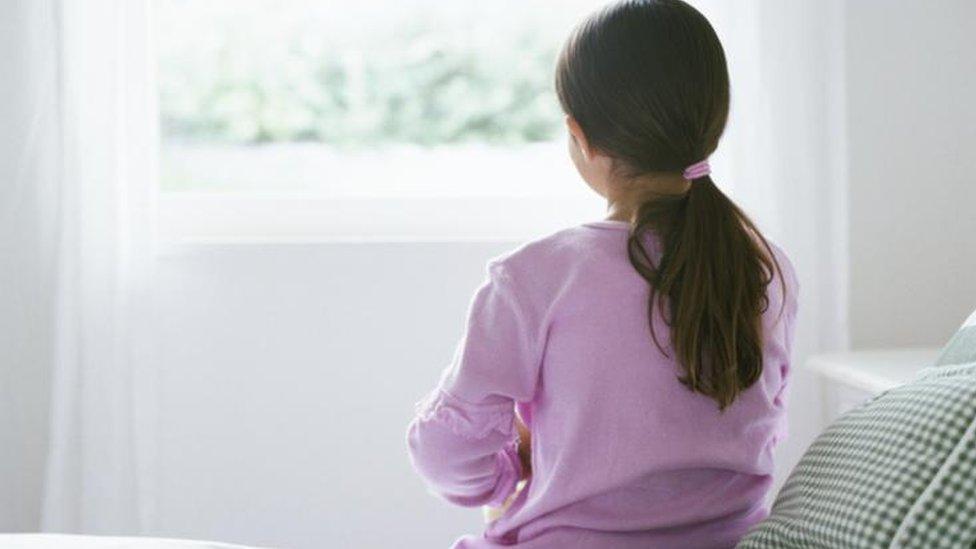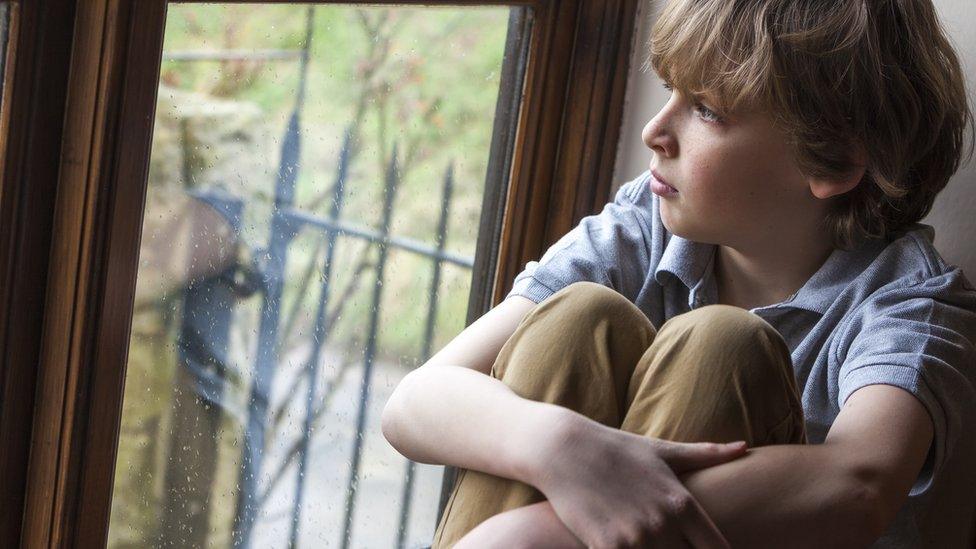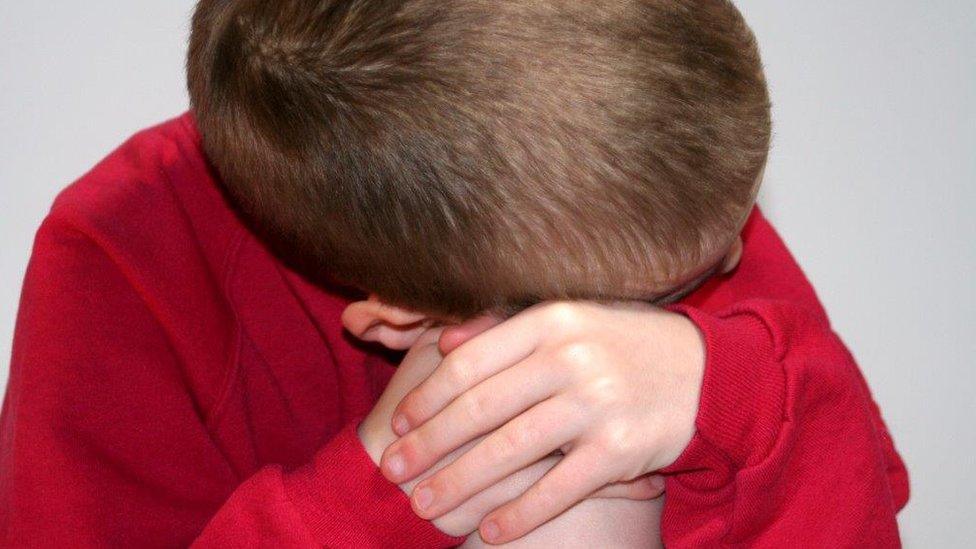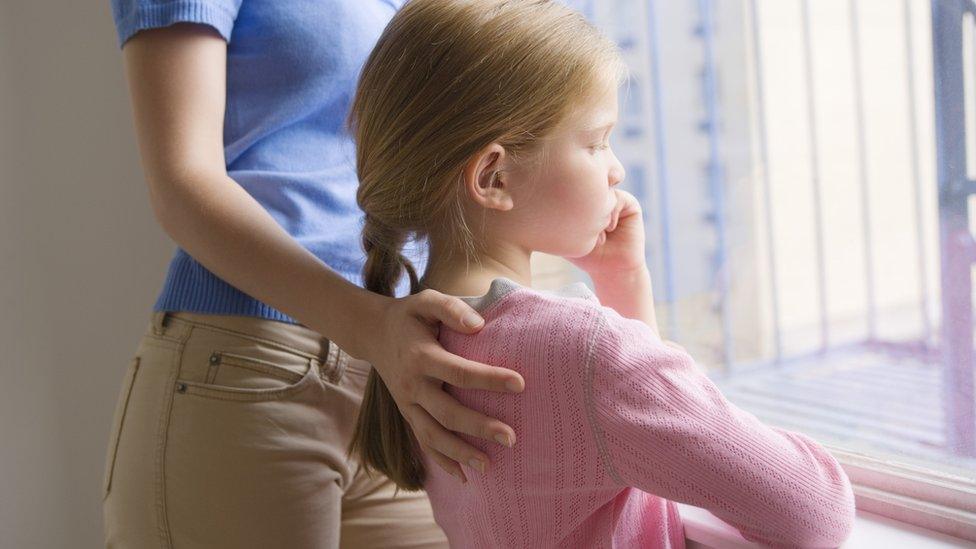Record numbers call Childline over suicidal thoughts
- Published

Youngsters told Childline of suicidal thoughts more than 50 times a day
Childline received an average of one call every 30 minutes from UK children with suicidal thoughts last year, the NSPCC has said.
Youngsters plagued by suicidal thoughts contacted Childline 19,481 times - more than double the number five years ago.
The charity said it referred many callers to the emergency services, adding a lack of support was leading children to reach crisis point.
The government insists it is investing in children's mental health services
Childline said, in its annual report, that it was receiving about 53 calls a day about suicide.
Many callers told the charity's round-the-clock service they were dealing with problems on their own, as the service identified an 87% increase in young people struggling to access professional help.
In 2015-16, Childline staff took 3,250 calls about children struggling to access mental health support.
'Cut off'
Most blamed lengthy waiting lists for services, a lack of information or a refusal to help.
The report said: "The chronic shortage of support is forcing many children to wait until they reach crisis point, when they feel the only place they can turn to is Childline."
NSPCC chief executive Peter Wanless said: "We have to understand why so many children are reaching such a desperate emotional state that they feel they have no option but to end their lives.
"As a society, we cannot be content that a generation of children feel so worthless, alone and cut off from support.
"It is up to all of us to help them feel that life is worth living.
"Children shouldering mental health problems often feel left in the shadows.
"Their pain is not obviously visible and their injuries cannot be mended with bandages.
"We must listen to them, find out what is troubling them, and help them overcome their problems."
'I'm worthless'
A turbulent home life, abuse, school pressures, and mental health conditions were all major triggers for suicidal thoughts, with children as young as 10 calling Childline.
One 15-year-old girl said: 'I am so stressed out with schoolwork and I've got exams coming up, which is causing arguments with my family.
"I don't know if I can cope much longer, so I have been thinking about suicide and have planned how to do it.
"For now, self-harming helps, but every time I cut, they get deeper and I'm scared it's going to go too deep one day."
A 13-year-old told counsellors: 'I'm a nobody, I'm worthless and I feel like I don't mean anything to anyone."
Last year, head teachers warned MPs they were having to call 999 to get help with mentally ill pupils.
Association of School and College Leaders specialist parliamentary adviser Anna Cole said Childline's report echoed the findings of a recent survey in which eight out of 10 school and college leaders who responded reported a rise in self-harm or suicidal thoughts among students.
"All schools and colleges provide a wide range of emotional health and wellbeing support to their students, and most provide some specialist mental health support such as counselling and sessions with other specialists," she said.
"Schools and colleges are, however, finding it increasingly difficult to commission specialist mental health services in the current climate of severe funding pressures."
A Department of Health spokesman said: "We have made huge strides in the way we think about and treat mental illness - moving from a society that locks people away in asylums to one giving mental health equal priority in law - but we must do more.
"It is positive that more people feel able to discuss their mental health, but this must be matched by the right support, which is why we are investing a record £1.4bn to help young people in every area of the country before they reach crisis point."
- Published28 May 2016

- Published15 June 2016

- Published9 November 2015
